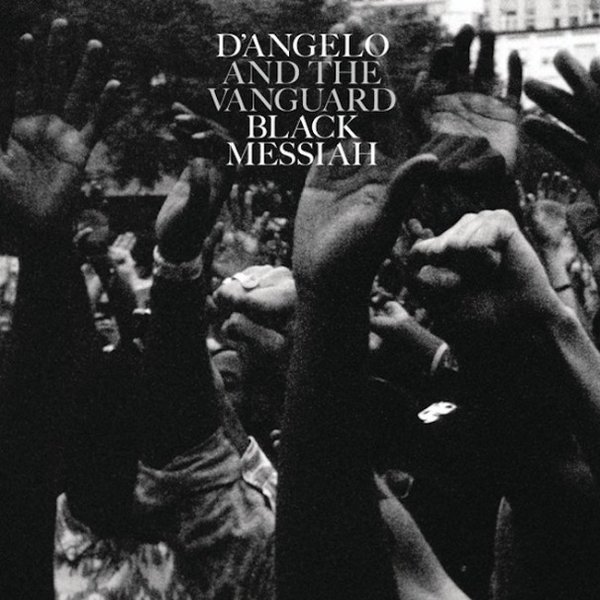
Black Messiah. A controversial title in turbulent times. An era in which rappers of different origins discredit each other on Twitter, a new civil rights movement is sparked by the Ferguson unrest and the fear of terrorism fuels mistrust and resentment all over the world. Concurrently, Michael Eugene Archer also known as D’Angelo drops an instant album after 14 years of silence, in this particular time with this particular title.
Some relate the title “Black Messiah” to the widely bespoken ‘Kanye West’ syndrome, others think it is associated to religious beliefs, but the rarest ones connect it to a societal model. D’Angelo explains it like this: “For me, the title is about all of us. It’s about the world. It’s about an idea we can all aspire to. We should all aspire to be a Black Messiah. It’s about people rising up in Ferguson and in Egypt and in Occupy Wall Street and in every place where a community has had enough and decides to make change happen. It’s not about praising one charismatic leader but celebrating thousands of them.“
A look at the credits of the lyrics unveils two remarkably different mentions with one of it evoking an extra delightful amazement. Next to Kendra Foster, known as a member of the P-Funk collective, Q-Tip himself is named as one of the contributors. The legendary Queens rapper and producer lately came into the picture for not only demonstrating against the judgment in the Eric Garner case on Times Square, but also for leading the masses.
‘The Abstract’ co-wrote, amongst other songs, the album opener “Ain’t That Easy”. A warm soul composition carried by an organic, light sonancy and a harmonic guitar string that tells a story of its own. Thereon D’Angelo’s indoctrinating chorus and his perfectly intonated, climax-hitting vocals send the listener into ecstasy. Another musical milestone on this long-awaited comeback is “Really Love”, which is a romantic love song stylistically influenced by classical Latin ballads. It comes in with the beautiful melody of a Spanish-guitar solo, is then accompanied by the mellow sound of a string orchestra and peaks with D’Angelo’s smooth falsetto voice that tenderly confesses affectionate feelings to a significant other.
On “Back In The Future (Part I)” it is getting jazzy with a mid-tempo groove, strong rhythm and D’Angelo’s improvised scat signing. Lyric-wise, he reflects on the merits of his up times, but also on the drawbacks as a consequence of the rise. Due to the exhilarative spirit of the song it appears like a sarcastic glorification of his golden era, but simultaneously as a depressive piece out of deep frustration. Brilliant. Poetry straight from the heart is served with “Betray My Heart”. A funky guitar, a hi-hat reduced beat and D’Angelo’s voice gentle and soft as velvet complete the sound-image of an impeccable soul tune. In contrast to that a vividly moody atmosphere is presented on “Prayer”. Driven by a heavy church bell and a gospel-inspired chant it makes a lasting impression of spirituality, hope for humanity and salvation of sinners.
The long wait for a third D’Angelo album surely paid off. His intention was not to hit the charts or grasp current pop cultural trends, but to resurrect D’Angelo’s notorious versatility and musicality that fulfills the life of music lovers. “Black Messiah” sets another musical milestone. As “Brown Sugar” and “Voodoo” are long players that will last for generations, likewise this collection of emotional, reflective, socio-culturally conscious and musically eclectic songs will never be outdated. The time has come, with his third album D’Angelo offers an analog masterpiece that lifts him up in the league of the biggest soul musicians that ever existed. “Black Messiah” is passionate. It is funky. It is contemporary-retro. It is infinite.
